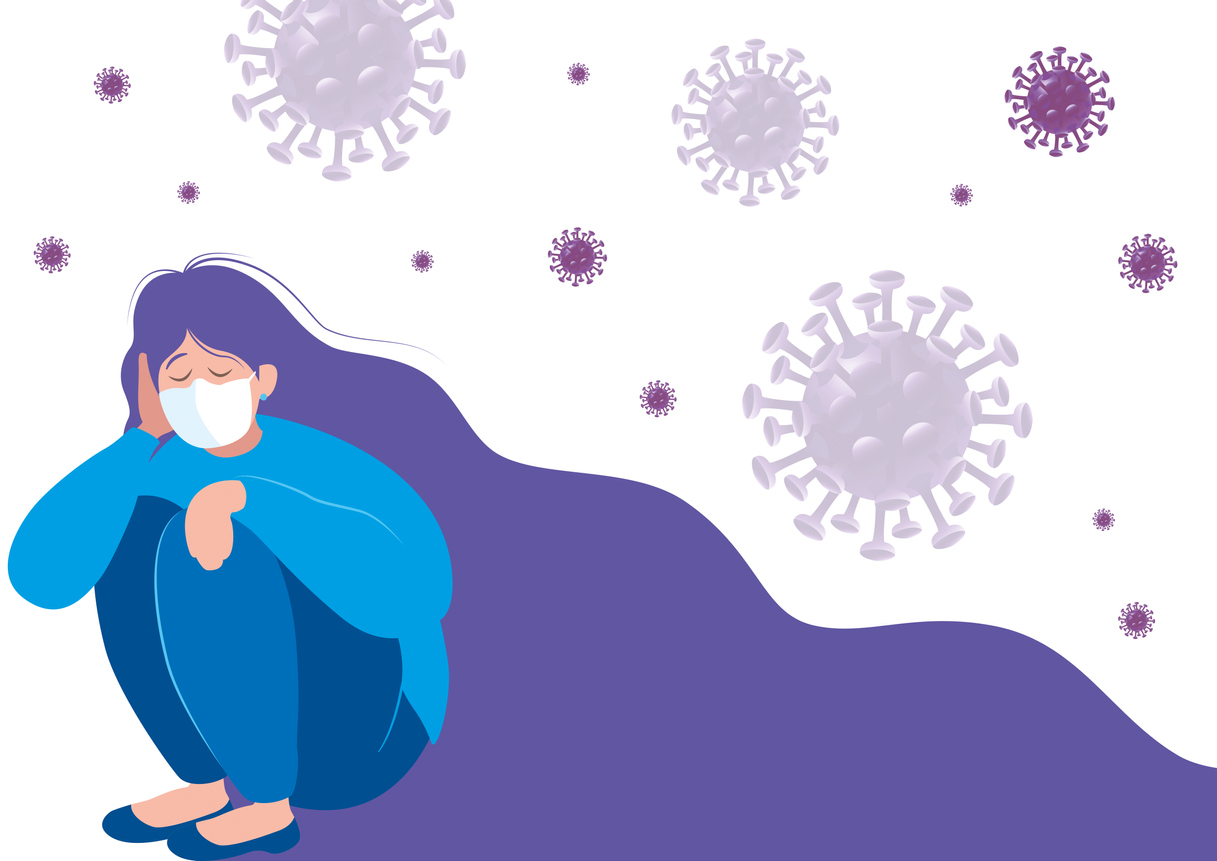The COVID-19 pandemic continues to impact well-being across the globe. Lockdowns, quarantine, and social isolation are taking their toll on our mental health. The worse could be yet to come, reports WFSBP Virtual 2021.
The Collaborative Outcomes study on Health and Function during Infection Times (COH-FIT) is a large-scale international study evaluating the overall health impact of COVID-19 and restrictive measures in the global population.1 The study is the largest of its kind, and now includes data from more than 150,000 people in 155 countries across six continents. Professor Christoph Correll, Zucker School of Medicine, Hofstra/Northwell, New York, and Charité University, Berlin provided a glimpse at some of the preliminary data emerging from the study.
The impact of social isolation on mental health
Globally, 12% of participants have been in quarantine and 14.3% have been diagnosed with a mental health disorder. Looking at individual regions, Asia reports the lowest proportion (5%) of participants both in quarantine and diagnosed with a mental health disorder (6.4%). Corresponding figures for Europe are 15% and 15.3%, respectively. In North and Central America, despite only 2% of participants being quarantined, a striking 25.6% have been diagnosed with a mental health disorder.
Access to medical care has been reduced by 24% since the start of the pandemic due to risk of and fear of infection
Reduced access to medical care and an increased sense of helplessness
Access to medical care has been reduced by 24% since the start of the pandemic due to risk of and fear of infection. There has been a 15% increase in the proportion of people reporting helplessness, which is particularly concerning because helplessness is related to depression and suicidality.
We know that people who are in an acute crisis situation are in survival mode said Professor Correll, so we are worried that the long-term effects of unaddressed mental health disorders will lead to an increased rate of suicides.
A wave of mental health problems is brewing
Contact with crisis hotline increased by almost 50%
The damaging effect of lockdowns on mental health was underscored by Professor Zalsman, Geha Mental Health Center, Israel, who reported a striking increase in people contacting the national chat-based crisis hotline in Israel. During the first months of 2020, contacts to the hotline increased by 48% compared to the same period in 2019 (p<0.0001). Notably, the number of suicide-related chats increased sharply in March and April 2020, corresponding to the total forced lockdown period.2
COVID-19 has abruptly and seriously altered our lives. We are at the tip of the iceberg, with a wave of mental health problems brewing, warned Professor Correll.
For the latest updates on sea.progress.im, subscribe to our Telegram Channel https://bit.ly/telePiM
Our correspondent’s highlights from the symposium are meant as a fair representation of the scientific content presented. The views and opinions expressed on this page do not necessarily reflect those of Lundbeck.




